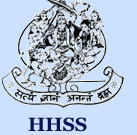|
|
 |

|
Rao Bahadur C.Srinivasa
Rao |

|
 |
Cadapanatham
Srinivasa Rao was born on the 10th of september 1875 in a small
town near Coimbatore where his father, the late Krishnaswamy
Rao, was employed as a Sub-Magistrate. Very early in life he
lost both his parents within an interval of forty days. He had,
therefore, to migrate with his three brothers to Madras, where
he passed his early boyhood under the care and protection of
his grandfather, the late B.Dhondu Rao, after whose death he
came under the guardianship of his uncle, the late Bhavani Raghvendra
Rao who has endowed Rs.40,000 for the grant os scholarships
to poor and deserving Brahmin boys of the Hindu High School.
|
He,
notwithstanding his slender resources,managed to bring up and
educate the Cadapanatham brothers under strick discipline and
in consonance with the ideal of plain living and high thinking,
which marked the career of Srinivasa Rao throughout.
Srinivasa Rao had his early education in the Anglo-Vernacular
High School, Triplicane, which has since come to be known as
the Hindu High School. After matriculating in the year 1890,
he joined the Presidency College, Madras, wherfrom he took his
M.A.degree in 1896. he competed for the Provincial Civil Service
examination, and although he was placed in the second rank among
the successful candidates, he was not selected for the Civil
Services. He, therefore, entered the Posts and Telegraphs Department
as a probationary superintendent in the year 1899. after serving
the department in the several parts of the Madras Presidency,
he became the Assistant Postmaster-General; and finally he was
elevated to the rank of Postmaster-General and held the post
of Dy.Director-General of posts and Telegraphs at New Delhi
in 1928. He was the first south Indian to occupy this exalted
office. Retiring from service on the 1st July 1930, he settled
down in Madras to a life of intense study of Indian philosophy
and religion.
In reconition of his good and unsullied record of service he
was awarded the little of Rao Bahadur in the year 1920.
Apart from being a good student at college, he was reputed to
be a keen sportman, his favourite4 game being football. Along
with Rao Bahadur K. K. Pandalai (Ex-Judge of the Madras High
Court) and others he was a poineer in the introduction and popularisation
of the game of football among the undergraduates in the city.
He had the distinction of leading the Presidency College Football
team, which was the first Indian team to win a trophy in a football
tournament held at Madras. Music also was one of his pet hobbies.
Not only was he a patron and critic of music but was himself
a good musician and a proficient player of the veena.
At the request of the late Dewan Bahadur M.O. Parthasarathy
Iyengar he accepted in 1925 a place on the Managing Committee
of the Hindu High School, which he retained till his death.
For two short spells in 1933-1936 he acted as the Secretary
of the Committee. He was also the President for some years of
the Mahratta Education Fund and of the S.S. Raghavendra Rao
School committee.
Through reserved and reticent by temperament, he was accessible
to all and impressed every one that came in contact with him
with his vast learning and prodigious memory. For his simple
habits, kind disposition and winning mjanners he was loved and
respected by all those who knew him. After a long period of
illness which he endured with philosophic resignation, he passed
away peacefully on the 23rd February 1944 at his residence in
Thyagarayanagar.
|
| End of the Content. Press Alt+K
to navigate |
|
|
